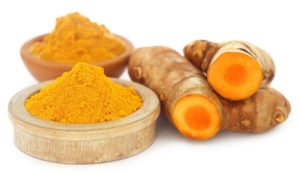
Research suggests turmeric and its components can potentially alleviate arthritis inflammation and pain.
Most people know turmeric as a powdered spice used to give foods flavor and color—it gives many curries their deep golden color. Derived from a plant in the ginger family, turmeric (Curcuma longa) contains a natural chemical compound called curcumin. Scientists have found curcumin has anti-inflammatory and antioxidant properties.
Studies suggest curcumin may provide relief for some people with osteoarthritis, rheumatoid arthritis, and other inflammatory arthritic conditions.
Curcumin Supplements
Analysts estimate curcumin accounts for only about 3 to 5% of turmeric. Arthritis pain relief may require ingesting more curcumin than a person eats in a typical diet, so advocates often recommend a dietary supplement.
Curcumin supplements typically contain curcumin (diferuloylmethane) as well as other chemicals naturally found in turmeric, including demethoxycurcumin and bisdemethoxycurcumin. Scientists believe that each of these compounds, collectively called curcuminoids, has anti-inflammatory effects.
Advocates suggest a daily curcumin supplement of 200 to 1000mg that contains 95% curcuminoids.
Pepper, or one of pepper’s primary chemical components, piperine, is included in some curcumin supplements. Many experts believe pepper aids the absorption of curcumin.
Antioxidant and Anti-inflammation Properties
How does curcumin work? Evidence suggests curcumin acts in many different ways to reduce arthritis symptoms.
Curcumin as an antioxidant
Researchers suspect that some or all painful arthritis inflammation may be caused by free radicals in the body. Free radicals—unstable molecules or atoms missing an electron—occur naturally in the body, but too many cause oxidative stress, which is linked to inflammation. Antioxidant foods, such as turmeric, leafy greens, and seafood high in omega 3 fatty acids, neutralize free radicals.
Many researchers believe that turmeric and its essential components, curcuminoids, have antioxidant properties and can be part of a diet that reduces the risk of disease and its effects.
Updated: 10/01/2015
Continue reading the original article from Arthritis Health here.
 Skip to content
Skip to content
